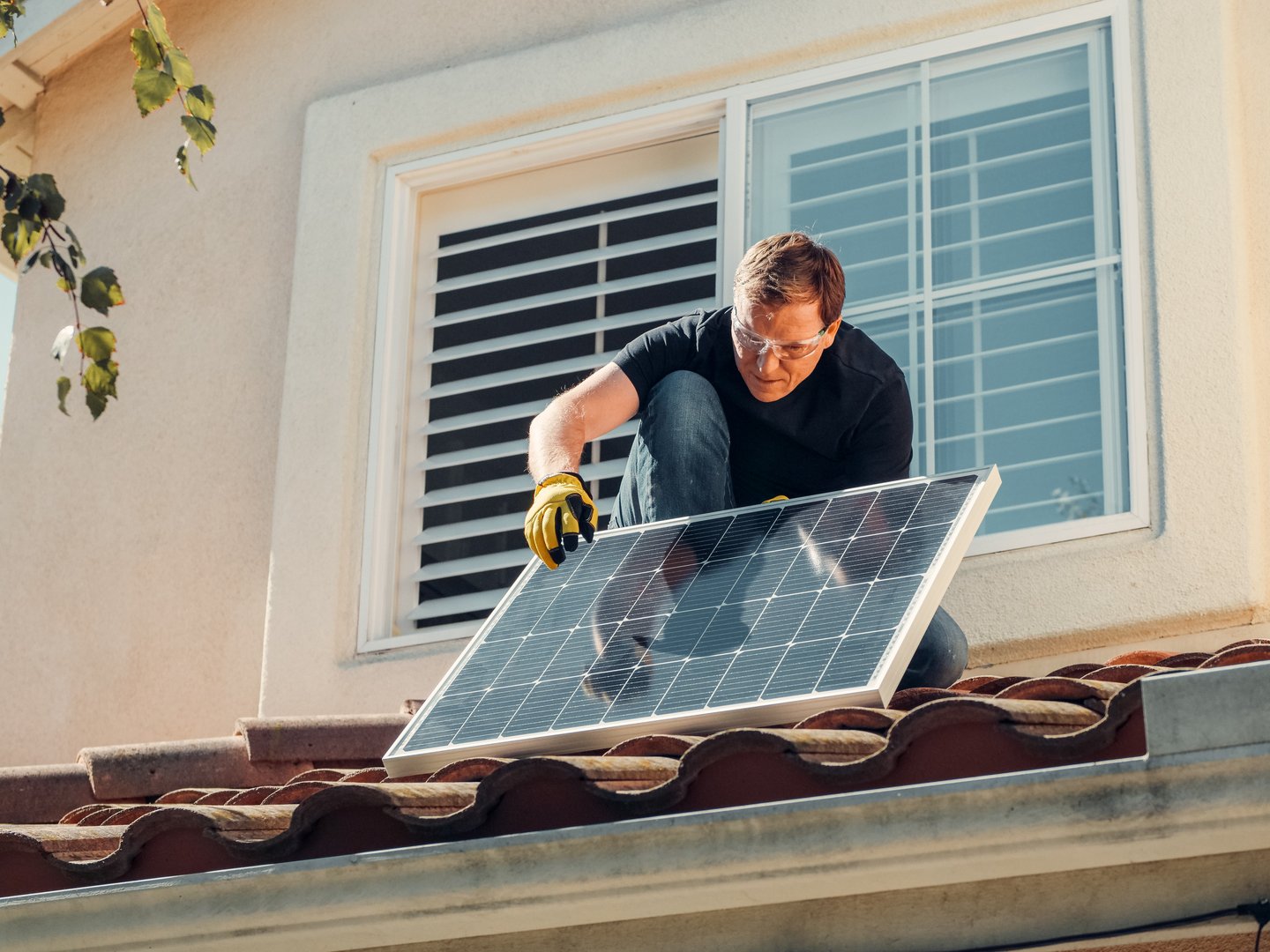The government scheme for ‘a solar panel on every rooftop’ is still ‘alive’ and it’s coming – though not in the autumn as earlier promised, but at the turn of the year. Meaning another one or two electricity bills away. Also, it’s been seriously re-jigged – especially when it comes to the funding part. On the plus side, many more households will be eligible than initially conceived.
On July 20 Energy Minister George Papanastasiou said the broader public would be able to apply for a photovoltaic (PV) rooftop system, and then repay it via installments to the Electricity Authority of Cyprus (EAC) – the implementing organisation.
At the time he explained it wouldn’t be a subsidy – the scheme would be financed by banks, and by importers and installers of PVs and storage batteries. All these will come under one umbrella – the EAC.
Essentially the state – through the EAC – would put up the capital for the PV systems as many people simply can’t afford it, and then consumers would pay it back in installments.
And it was going to be hybrid – PVs with storage batteries. That way, any energy not absorbed would be stored for later – kicking in even during the same night on any given day.
The government at the time telegraphed early autumn for the official announcement.
Fast forward to today. First, the Sunday Mail learns the scheme will be announced “in a few weeks’ time” and actually rolled out at the beginning of 2024.
In fact, officials had toyed with the idea of unveiling it during the course of the COP28 taking place in Dubai from November 30 to December 12. Apparently that thought was scrapped.
Secondly, the funding. Out go the banks, in comes the RES and Energy Conservation Fund under the energy ministry.
“The capital will come from the RES fund, into which all consumers pay around €4 on their bills,” confirmed EAC spokesperson Christina Papadopoulou.
And it will be subsidised – to the tune of up to €1,000 for eligible households.
Papadopoulou explained how it will work. Those eligible will apply to the energy ministry and will get a ‘loan’ – tentatively up to €6,000 or €7,000 – for the PV system. Applicants will sign a contract with the energy ministry. With that capital they’ll order and install a system. Once it gets certified by a technician, hooked up to the grid and starts running, the first repayment installment kicks in – on the regular bills issued by the EAC.
“So, applicants will enter into two contracts – with the energy ministry and with the EAC,” said Papadopoulou.
Why €6,000 to €,7000, and how does that value come about? Because the systems to be installed will have explicit technical specs and will be of a capacity of up to 4.5 kilowatts.
“It won’t be the cheap stuff that some companies tend to install under existing government schemes,” another source tells us. “These businesses would collect the money from the government and then install their most inexpensive system in their stock. Not anymore.”
As previously announced, the scheme would have been open to anyone and available in three versions: 4 kilowatts, 7 kilowatts and 10 kilowatts, depending on the particulars of the residence. That’s gone too.
“Now it’s fixed at 4.5 kilowatts – or up to 4.5 kilowatts, to be precise,” says Papadopoulou. “It’s geared to small to medium-sized households, in terms of consumption.”
These are households with an average of up to 1,000 kilowatt-hours consumption every two months. It’s intended to benefit ‘the average Joe and Jane’.
As the other source put it: “We didn’t want mansions with swimming pools to qualify. They can afford to pay for a PV system out of pocket.”
Another departure from the original plan is the absence of batteries – so no more hybrid. It will be straight-up solar panels.
Why? Because hybrid systems cost more, and officials didn’t want people to get saddled with even higher repayment installments.
“This way, it will have broader appeal, which is the objective,” said the source close to the government, who preferred to remain anonymous.
Another reason, though, might be the financial constraints of the RES fund.
The same sources estimated that anywhere from 20,000 to 30,000 households would be eligible to apply.
That’s still a far cry from the ‘on every rooftop’ meme – but also way better than the initial iteration of the scheme.
“Under the previous plan, the EAC had budgeted approximately €5 million. It would’ve been enough to cover just 1,200 homes.”
So once a person installs a PV system, the cost for actual electricity consumption will plunge, but then a separate line item is added to the bill for the repayment installment – repaying the aforementioned loan from the RES fund. The installment amount, we’re told, is currently envisaged at €150. Overall, however, people will see a considerable drop in the invoice.
The scheme has apparently got regulatory approval – from the energy regulator as well as the commissioner for state aid control.
But the government hasn’t gotten all its ducks in a row. The Sunday Mail hears the scheme is now being legally vetted by the attorney-general’s office.
One potential flaw has to do with what happens if a beneficiary pays for the electrical consumption, but not the installment for the PV system. Does the EAC then cut off the power?
“That’s a tricky one,” concedes Papadopoulou. She says precedent suggests the EAC cannot legally do that.
In any event, the new PV scheme couldn’t come too soon. Stories abound of domestic consumers forking out €1,000 and more on electricity. And things won’t get any easier, what with the announced carbon tax coming in a few months’ time.







Click here to change your cookie preferences